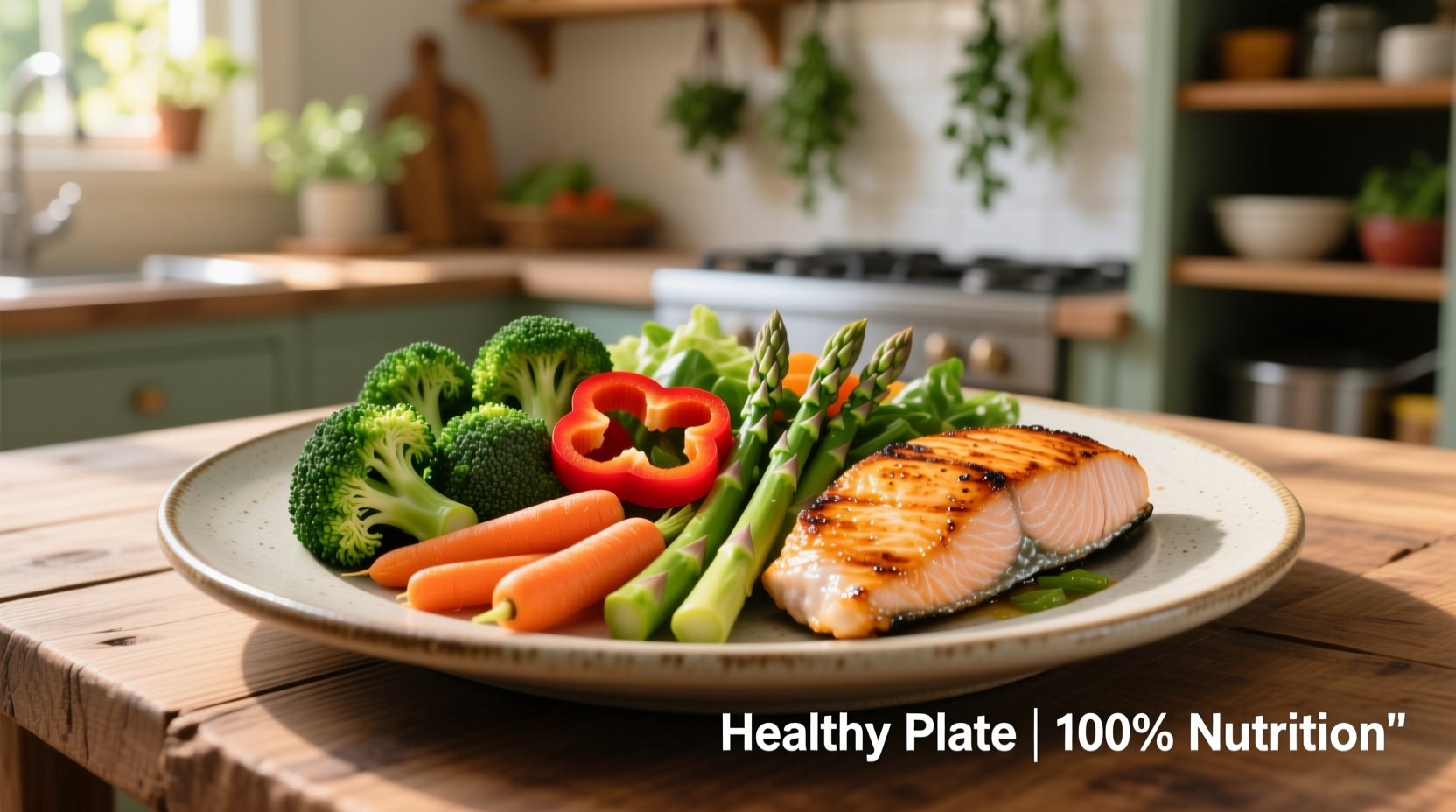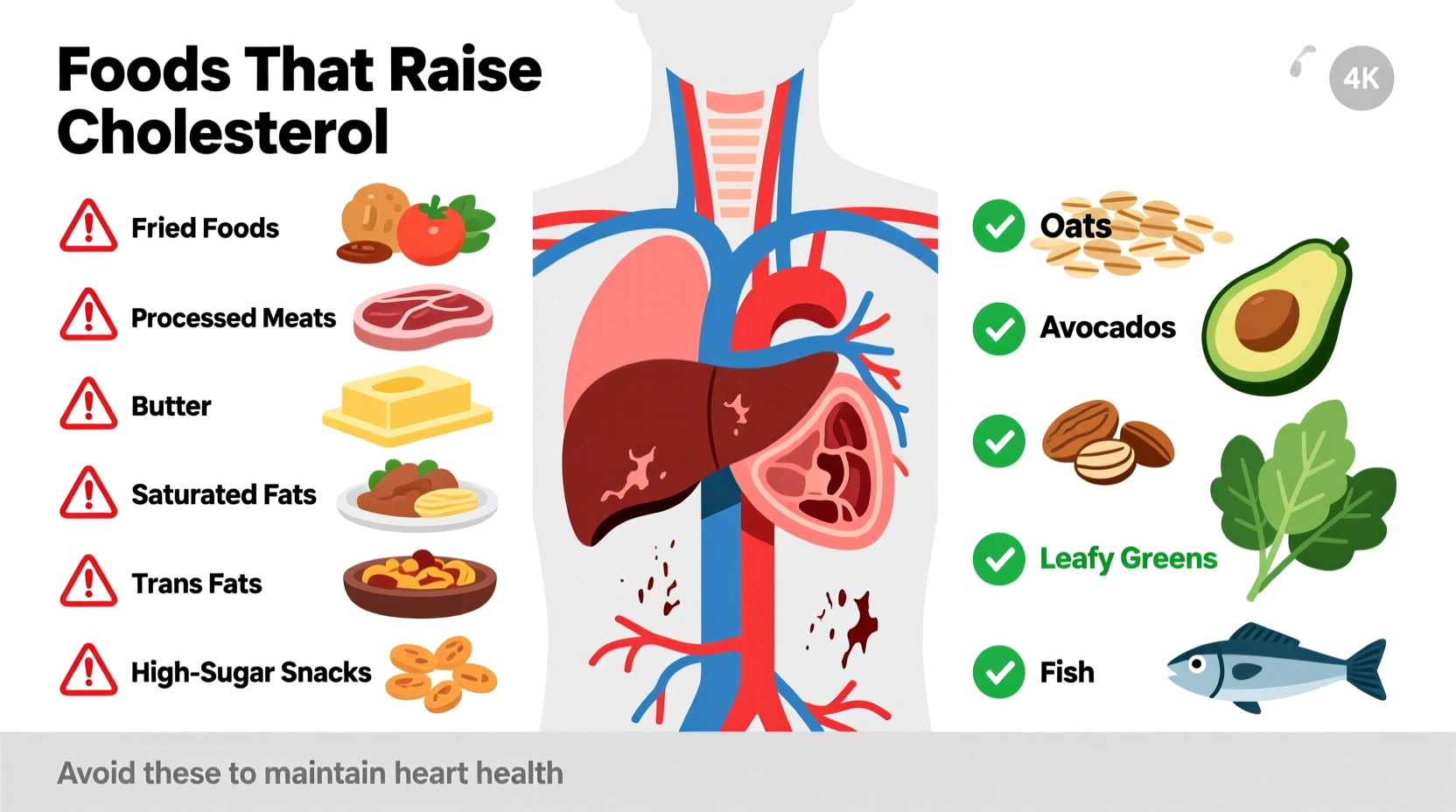Understanding Cholesterol and Your Diet
Cholesterol isn't inherently bad—your body needs it for vital functions. The problem arises when LDL (low-density lipoprotein) cholesterol builds up in your arteries, increasing heart disease risk. While your liver produces cholesterol naturally, certain foods dramatically elevate your levels. The American Heart Association recommends limiting saturated fats to 5-6% of daily calories and avoiding trans fats completely for optimal heart health.
Foods That Significantly Raise Cholesterol Levels
Trans Fats: The Most Dangerous Culprit
Partially hydrogenated oils, commonly found in:
- Commercially baked goods (cookies, cakes, pastries)
- Fried foods (especially deep-fried restaurant items)
- Non-dairy coffee creamers
- Microwave popcorn
Trans fats not only raise LDL cholesterol but also lower HDL ("good") cholesterol. According to the U.S. Food and Drug Administration, eliminating trans fats from the food supply could prevent thousands of heart attacks and deaths each year.
Saturated Fat-Rich Foods
These foods contain high levels of saturated fats that directly increase LDL cholesterol:
| Foods High in Saturated Fats | Cholesterol Impact | Better Alternatives |
|---|---|---|
| Fatty cuts of beef, pork, lamb | Increases LDL by 10-15% with regular consumption | Lean poultry, fish, plant-based proteins |
| Full-fat dairy (whole milk, cheese, butter) | Elevates LDL, especially in sensitive individuals | Low-fat dairy, olive oil, avocado |
| Tropical oils (coconut, palm oil) | Raises LDL similar to animal fats | Canola oil, sunflower oil |
| Processed meats (sausage, bacon) | Increases heart disease risk by 18% per serving | Turkey bacon, plant-based alternatives |
Dietary Cholesterol Sources
While dietary cholesterol has less impact than saturated and trans fats for most people, certain high-cholesterol foods still matter:
- Organ meats (liver, kidney) - extremely high in cholesterol
- Shellfish (shrimp, lobster) - moderate cholesterol but healthy otherwise
- Egg yolks - problematic only for cholesterol-sensitive individuals

How Research on Dietary Cholesterol Has Evolved
Understanding how food affects cholesterol has changed significantly over time:
| Time Period | Scientific Understanding | Dietary Recommendations |
|---|---|---|
| 1970s-1990s | Dietary cholesterol directly causes high blood cholesterol | Limits of 300mg daily; avoid egg yolks and shellfish |
| 2000s | Saturated fats have greater impact than dietary cholesterol | Focus shifted to reducing saturated fats first |
| 2010s-Present | Individual response varies; genetics play major role | American Heart Association focuses on overall dietary patterns rather than specific cholesterol limits |
According to the Centers for Disease Control and Prevention, only about 25% of people experience significant blood cholesterol increases from dietary cholesterol. For these "hyper-responders," limiting high-cholesterol foods remains important.
Practical Guidance for Reducing Cholesterol-Raising Foods
Reading Food Labels Effectively
When evaluating packaged foods, look for:
- "Partially hydrogenated oils" in ingredients (indicates trans fats)
- Saturated fat content (aim for less than 5g per serving)
- "0g trans fat" claims (can still contain up to 0.5g per serving)
Simple Swaps for Common Problem Foods
Implement these easy substitutions without sacrificing flavor:
- Replace butter with avocado or olive oil in cooking
- Choose lean turkey bacon instead of pork bacon
- Use Greek yogurt instead of sour cream
- Snack on air-popped popcorn instead of chips
Context Matters: When Some High-Cholesterol Foods May Be Acceptable
Not all high-cholesterol foods are equally problematic. Understanding context boundaries is crucial:
- Eggs: Most healthy people can eat 1-2 daily without issues
- Shellfish: High in cholesterol but also rich in heart-healthy omega-3s
- Dark chocolate: Contains saturated fat but also beneficial flavonoids
The American Heart Association emphasizes that overall dietary patterns matter more than individual foods. A Mediterranean-style diet rich in vegetables, whole grains, and healthy fats has proven benefits for cholesterol management.
Building a Heart-Healthy Eating Pattern
Instead of focusing solely on what to avoid, build your diet around these cholesterol-lowering foods:
- Soluble fiber sources (oats, beans, lentils, apples)
- Fatty fish (salmon, mackerel, sardines)
- Nuts and seeds (almonds, walnuts, chia seeds)
- Plant sterols (found in fortified foods)
When to Consult a Healthcare Professional
Dietary changes alone may not be sufficient for everyone. Consult your doctor if:
- You have a family history of high cholesterol
- You've had a heart attack or stroke
- You have diabetes or other metabolic conditions
- Dietary changes haven't improved your levels after 3-6 months











 浙公网安备
33010002000092号
浙公网安备
33010002000092号 浙B2-20120091-4
浙B2-20120091-4